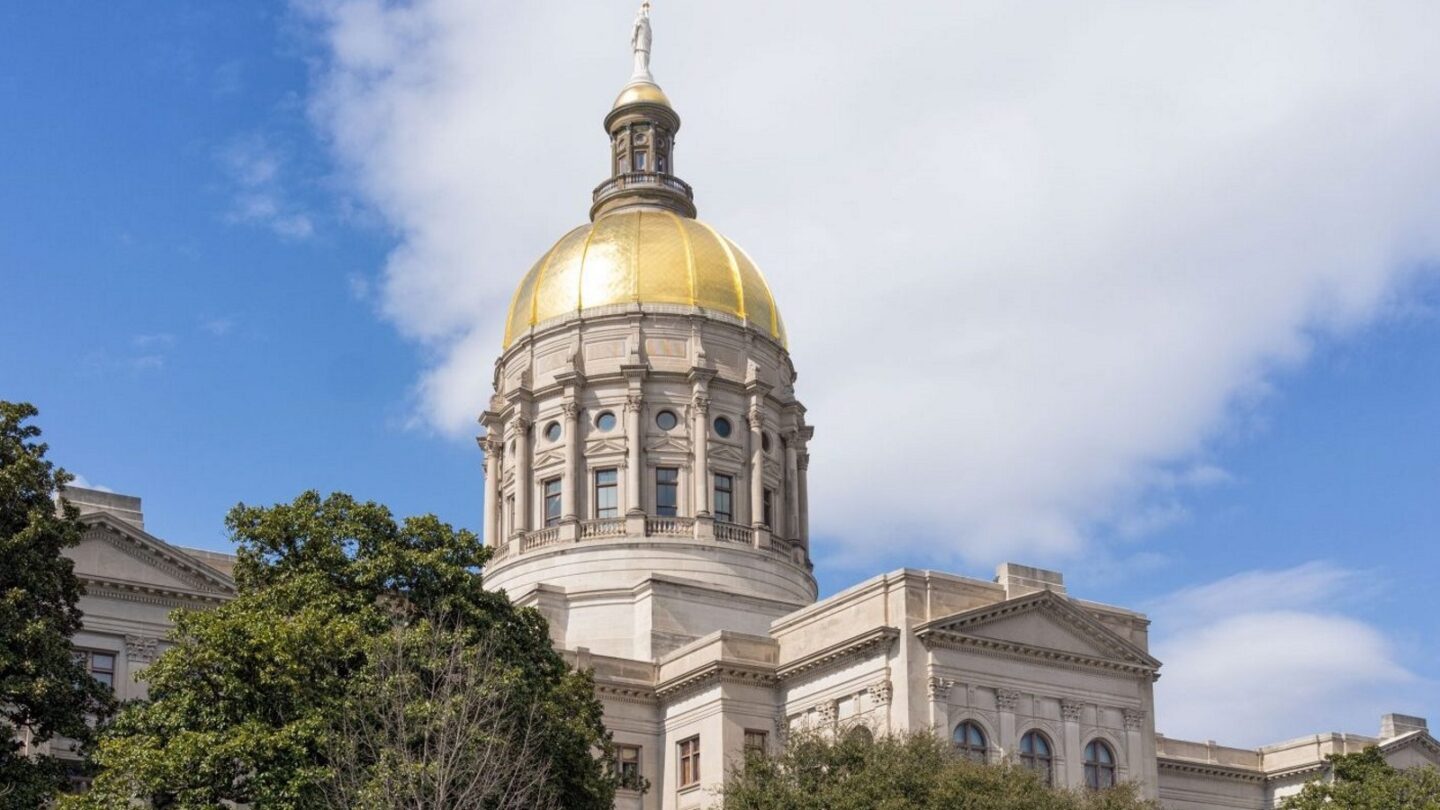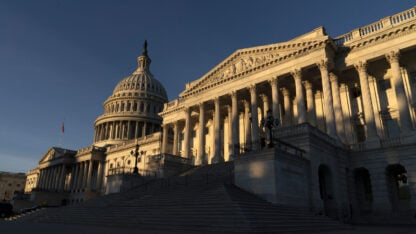Georgia state lawmakers are moving forward with a proposal to further cut the state income tax rate, and shift its structure from a graduated income tax ranging from 2% to 5.75% depending on income to a flat income tax rate: 5.375% for all incomes.
“I believe it’s important we keep our promises,” said Republican Rep. Brett Harrell, chair of the ways and means committee who championed the bill. Lawmakers passed a state income tax rate in 2018, with the option built in to make an additional cut in 2020. The proposal would go into effect on January 1, 2021.
“We are not going to put the state, the citizens of Georgia, the valuable programs we offer at risk, at the same time reducing the burden of government on those who are funding these wonderful programs,” he said. He estimated the change will mean a $98 million revenue drop in the first year, which would grow to about $250 million in 2025.
Harrell’s proposal passed 100 to 68 on a near party-line vote. Some Democrats spoke out against it, both on the grounds that the structure is unfair, and that it puts Georgia revenues at risk while the state is being forced to cut hundreds of millions of dollars after a shortfall in state revenues.
“We are fundamentally changing the way personal income tax is treated under Georgia law,” said Democratic Minority Leader Bob Trammell. “The taxpayers who will be in a position to benefit most from this bill are higher-income taxpayers.”
“We should go very slowly before we proceed into a change of this nature. We should think about who it benefits,” Trammell said. “We should think about who bears the brunt of the budget cuts we will have to do as a result of less revenue.”
Danny Kanso, an analyst with the Georgia Budget and Policy Institute (GBPI) agreed the flat tax “would almost exclusively benefit high-income earners at the expense of teachers and low- to middle-income Georgia families across our state.”
“While Georgians at the very top of the economic ladder would benefit from over $4,200 in average tax savings, most Georgians would either experience a tax increase or a share of savings so limited that they would be unlikely to observe an increase in their regular take-home pay,” Kanso said.
The GBPI estimates 52% of Georgians would see a tax increase after the change.
Harrell disagreed, arguing that the flat tax rate would affect all income levels proportionately.
“It’s a percentage,” he said. “That’s the way the bill works.”
He also pointed out a new income tax credit for households below a certain income level built into the bill.
Kanso countered that credit would “do little more than partially offset” the tax increase GBPI predicts.
A priority of Gov. Brian Kemp, tripling the state’s adoption tax credit, is also included in the legislation.
“I’m confident that this measure is prudent, it’s measured, it’s fiscally responsible,”’ Harrell said. “It rewards those that are hardworking in our state with some small amount of tax reduction as opposed to the burden we place on them on all levels of government”
State Economist Jeffrey Dorfman addressed the idea of cutting the state income tax rate again in January.
He said at the time the state needs to attract new companies and jobs in order to grow revenues.
“I don’t believe the way you get companies to move to Georgia is by lowering the income tax rate. The reality is once we add our federal and state income tax rates together, a quarter percent one way or the other on the state income tax rate just doesn’t move the bar,” he said.
“Thinking about smart ways to attract businesses, like keeping our rating as the number one state to do business, removing needless regulations, speeding up the permitting process, these are the things we need to do.”
Yet it is likely to be politically difficult for a Republican-controlled state Senate and Republican governor to stand in the way of a tax cut. As Rep. John Corbett said on the House floor, “Is it not true that Republicans cut taxes?”
“I’m always for cutting taxes,” Kemp said in a January interview about the idea of cutting the income tax rate again. “How we do that, I think, is the big question and whether you get the value of those tax cuts and really for tax credits too, what’s the return on investment?”









